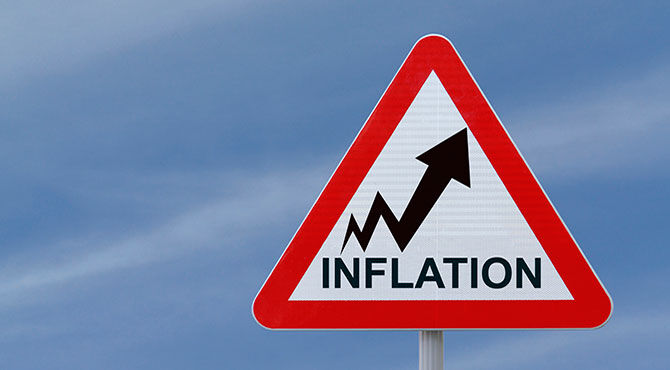Rising inflation leads to downgrade in UK growth
Growth in the UK economy in the first quarter of the year was unexpectedly revised downwards on Thursday by the Office for National Statistics (ONS).

Rising prices
“Today’s GDP data indicate that the economy slowed even more than previously estimated in the first quarter of 2017, as consumer spending power was squeezed by rising prices,” he said.“Excluding population growth, real GDP per head – the broadest measure of living standards in the economy – flatlined in the first quarter.“Estimated GDP growth in Q1 was revised down from 0.3 to 0.2 per cent and further detail was released confirming that the slowdown was focused on consumer spending and related industry sectors, such as retailing, hotels and restaurants, transport and communications.”Lee Hopley, chief economist at the manufacturers’ organisation EEF, said it was clear economic growth was suffering because of the squeeze on real wages from rising inflation, currently estimated at 2.7 per cent.Related news:
- Bank of England ups inflation forecast and lowers growth
- Pensions deficit improves as life expectancy growth stalls: PwC
- Survey shows European business confidence growing at last
Sluggish household spending
“While the downward revision may have been unexpected, the reasons behind the weakness surely aren’t. Sluggish household spending growth, a consequence of the squeeze on real incomes starting to kick in, and some pull back on export growth after an impressive end to last year,” she said.“We expect the consumer weakness to persist as wage growth falls further behind rising prices, but there should be some turnaround on the trade front, driven by a brighter outlook in the rest of the world. For those on the hunt for some good news in the data, it was to be found in the investment numbers.“Business investment picked up at the start of this year and some big revisions to investment at the end of last year mean the investment picture isn’t as dire as first thought. Still, we’ll need to see this rebound continue and strengthen for longer-term productivity prospects to improve.”Ian Stewart, chief economist at Deloitte, added, “Just as expected, higher inflation is squeezing incomes and spending. High inflation is hitting consumers, but a weak pound and a recovering global economy are helping businesses. UK growth is likely to tilt away from the consumer towards exports, manufacturing and investment this year. This should keep the UK economy growing at a similar rate to last year.”For related news and features, visit our Enterprise section.Access hundreds of global services and suppliers in our Online Directory Get access to our free Global Mobility Toolkit
Get access to our free Global Mobility Toolkit 
©2024 Re:locate magazine, published by Profile Locations, Spray Hill, Hastings Road, Lamberhurst, Kent TN3 8JB. All rights reserved. This publication (or any part thereof) may not be reproduced in any form without the prior written permission of Profile Locations. Profile Locations accepts no liability for the accuracy of the contents or any opinions expressed herein.
































